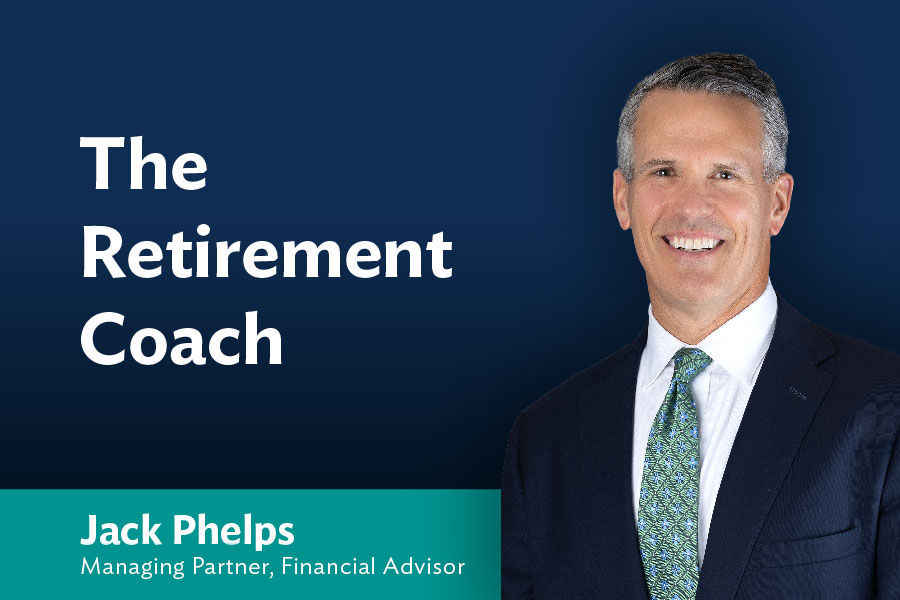With Stocks in Turmoil, Pretend You’re a McDonald’s Franchise Owner

During weeks like we’ve recently experienced when stock market volatility spikes and the value of your strategically allocated retirement portfolio declines, it’s particularly useful to put investing in perspective.
Think about this …
Assume that 30 years ago, you took the carefully thought-out leap of faith to borrow the necessary funds to buy and operate a McDonald’s franchise.
Quite a leap of faith as all your friends and co-workers thought you were crazy, not to mention your spouse!
After attending Hamburger University and suffering through a lot of bumps and bruises over the next 18 years, you reached the point where profits were good, and you had the confidence to purchase a second McDonald’s franchise.
Throughout the years, you ran your stores exactly as McDonald’s suggested. You carefully studied your marketplace, and you’ve come to understand and develop a level of confidence with each store’s cash flow during good and challenging economic cycles. And your profits, while not explosive or in a straight line, have continued to rise over the years.
While it’s been anything but easy, you’re happy with the decision you made 30 years ago. Owning these two McDonald’s franchises has provided a nice income and lifestyle for you and your family, and it appears to be able to do so for the foreseeable future.
Your Big Question
What if the person I just described who owns these two McDonald’s was really you?
Imagine surfing the news online today and reading these current headlines from Yahoo Finance and Wall Street’s MarketWatch:
- Dow, S&P 500 and Nasdaq Struggling to Rally After Trump Tariff Tumble
- The Economy’s at Risk of Plunging into an Air Pocket, says JP Morgan. What Would That Mean for Stocks Now and In the Future?
- Why the February Jobs Report May Push a Jittery Stock Market Toward a Correction
- Shocked Reaction to White House Zelensky Meeting Sends Europe Defense Stocks Soaring
Here is your BIG Question: Would you scramble and search for the phone number of a business broker so you could immediately put your two McDonald’s franchises on the market?
After all, the market has had two strong years in a row and has reached several all-time highs. Aren’t we due for a big market correction?
What if the Fed changes course and begins to raise interest rates to deal with persistent inflation?
What if all the changes in Washington since the election lead to more economic challenges this year?
What then?
Would your McDonald’s survive?
Wouldn’t it be smarter to sell your franchise and then, when everything settles down and gets back to “normal,” you can buy another one?

The Level-Headed Investor’s Guidebook
5 best practices during uncertain times. When volatility strikes, keep calm and carry on toward your investment goals!
Your Likely Answer
Given everything I’ve shared with you about the owner of these two McDonald’s, I’m confident that you’re laughing right now and shouting a resounding “No Way!”
If that’s true for you, why not? Why wouldn’t you sell your franchise?
To start with, you’re an owner! You didn’t buy your McDonald’s so you could buy and sell in and out of them in order to gain some sort of short-term profit.
Second, you’ve lived through a lot over the last 30 years. You know what you own. You’ve seen how they perform during up and down market cycles, and your experience tells you that the long-term impact on your McDonald’s from any of these reported “crises” is little or nothing.
What’s the Difference?
What is the difference between owning a McDonald’s franchise as I’ve described vs. owning common stock shares in any publicly traded company, either directly or through a mutual or exchange-traded fund?
Please take a moment to pause and really give some thought to this.
The significant difference is your choice to “operate” the McDonald’s franchise, i.e. “work in the business” on a day-to-day basis. However, many franchise owners own multiple units and don’t work “in” the business at all.
Aside from that, you’re an owner of a business in both scenarios.
When we invest, what are we doing? We’re buying ownership shares of various companies. That’s what investing is … ownership.
In order to maintain our purchasing power to support our ideal lifestyle in a continuously rising cost world, we own and strategically accumulate shares in many companies. We do this because we need to own assets that have the potential to rise in value over time and generate increasing levels of income.
This may appear basic, but how we “think” about it is a critical distinction for your future.
When we listen to and watch the financial media every day and listen to friends, family members, and co-workers talk about investing, this is not what we hear.
We hear them talk about the “stock market” as if it’s a mysterious and scary thing.
The “stock market” is simply a mechanism for millions of individuals to buy and sell ownership shares in thousands of companies throughout the world.
That’s it.
It’s a collection of thousands of enterprises whose current value and dividend levels will each rise and fall over time based on their ability to generate profit and income for their “owners.”
When you invest, you’re not trading in and out of “the stock market.” You’re buying an “ownership” stake in one, or hopefully, thousands of companies just like buying a McDonald’s franchise.
Buying and owning shares of well-run companies is a lifelong venture for everyone who has a goal of generating inflation-fighting income so they can maintain their chosen ideal lifestyle.

